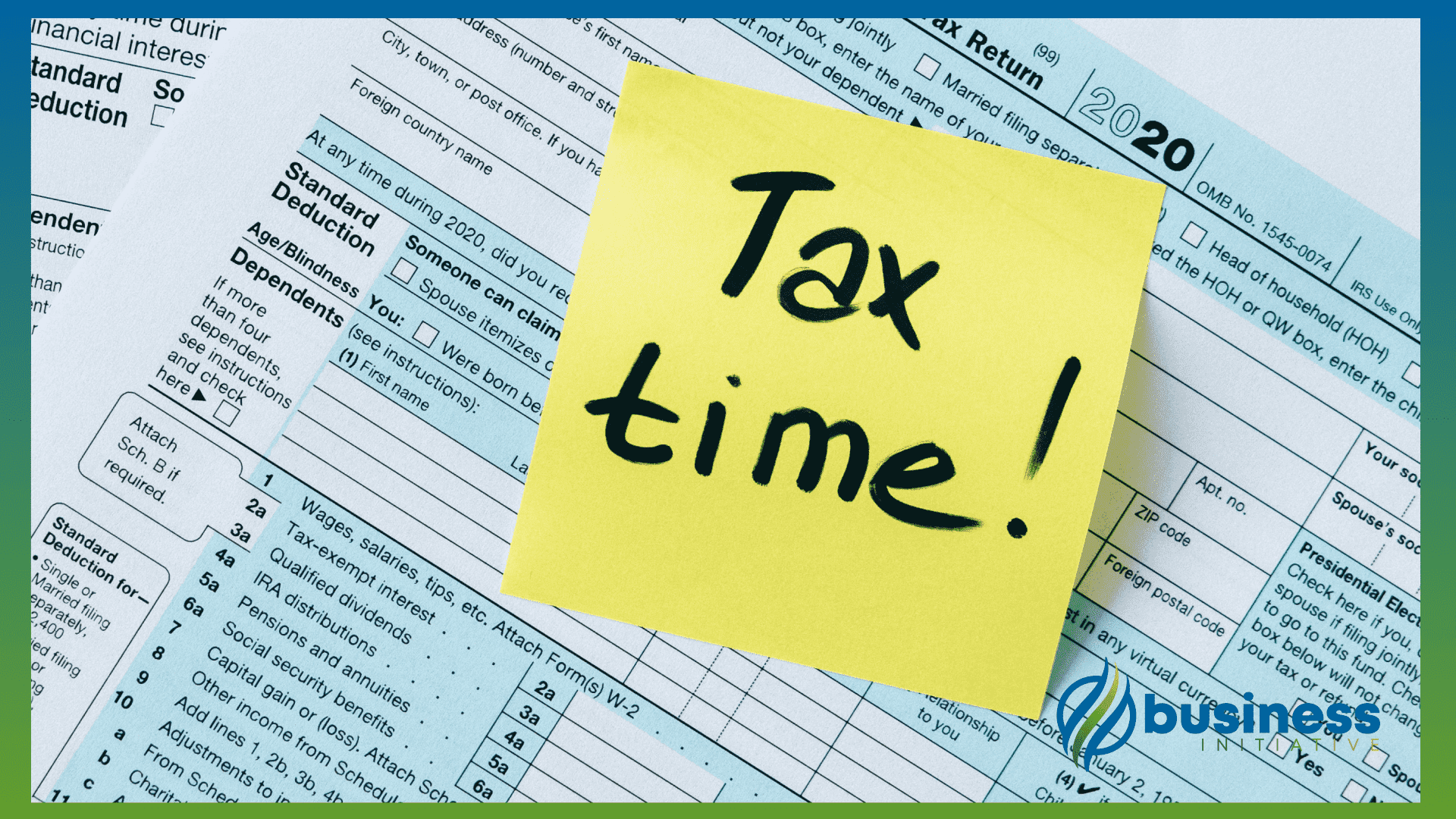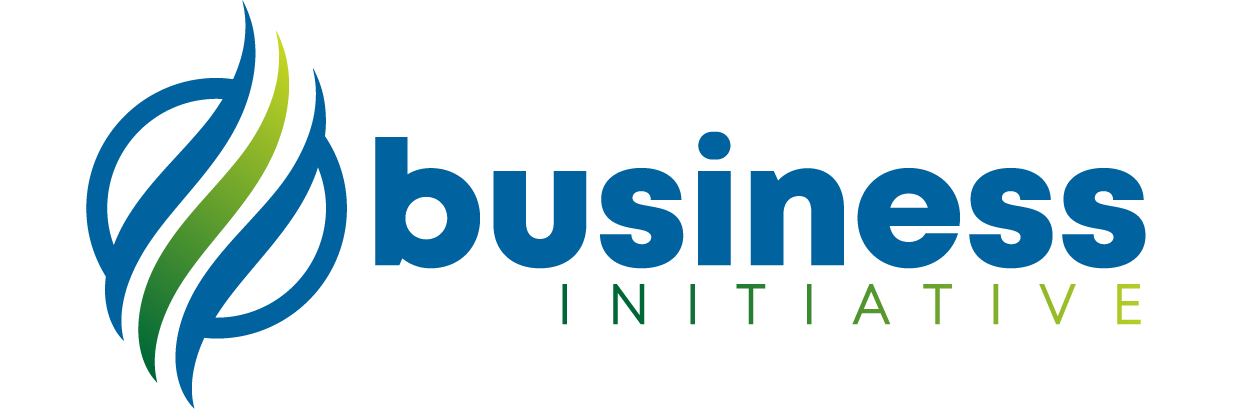In today’s competitive business landscape, entrepreneurs and business owners are constantly seeking ways to improve their company’s financial performance.
One critical aspect often overlooked is effectively managing corporate taxation and minimizing tax liabilities.
 Key Takeaways
Key Takeaways
- Choose the right legal structure to optimize tax liabilities based on your business model and revenue goals.
- Maximize deductions and credits by leveraging R&D credits, depreciation, and other tax-reducing opportunities.
- Maintain accurate records using accounting tools to track expenses and ensure full compliance.
- Consult a tax professional for strategic advice on deductions, credits, and compliance with evolving tax laws.
- Stay updated on tax regulations to avoid penalties and optimize tax planning with timely adjustments.
Understanding corporate taxation is crucial for business owners to ensure compliance, avoid penalties, and minimize tax liabilities.
Corporate taxation refers to the taxes levied on the income and profits of businesses.
These taxes can be complex and vary depending on factors such as the company’s legal structure, location, and revenue.
 Table of Contents
Table of Contents
This article will provide an overview of corporate taxation, discuss strategies for minimizing tax obligations while maintaining compliance with tax regulations, and offer practical advice for navigating the complex world of taxes.
Understanding Your Company’s Tax Obligations

To effectively minimize your company’s tax burden, it’s essential to understand the specific tax obligations your business faces.
Key factors that determine these obligations include:
- Legal structure (e.g., sole proprietorship, partnership, corporation):
The type of legal entity that a business is registered as.
Research the different types of legal entities and consult with a lawyer or accountant to determine which structure is best for your business.
- Revenue and profit:
The amount of money a business earns and the amount of money it makes after expenses are subtracted.
Track all income and expenses, and regularly review financial statements to understand the business’s financial health.
- Location and jurisdiction:
The physical location of a business and the laws and regulations that apply to it.
Research different locations and the laws and regulations that apply to businesses in those areas, and consider factors such as accessibility, competition, and cost of living.
- Employee payroll taxes:
Taxes that employers are required to withhold from employees’ paychecks and pay to the government.
Consult with an accountant or payroll specialist to understand the requirements for withholding and paying payroll taxes.
- Sales and use taxes:
Taxes that are charged on goods and services sold to customers.
Research the sales tax laws in your jurisdiction and consult with a tax professional to ensure compliance.
Expenses that can be subtracted from a business’s taxable income, as well as tax credits that can reduce the amount of tax owed.
Keep detailed records of all expenses and consult with a tax professional to identify eligible deductions and credits.
29 Tax Planning Strategies to Turn You into a Professional

There are several strategies you can employ to minimize your company’s tax burden, including:
1. Timing income and expenses:
By strategically timing income recognition and deductible expenses, you can lower your taxable income and overall tax liability.
2. Maximizing deductions and credits:
Ensure you’re taking advantage of all available deductions and credits, such as research and development tax credits, depreciation, and business-related expenses.
3. Selecting the appropriate legal structure:
The structure you choose for your business can significantly impact your tax obligations.
Consult with a tax professional to determine the best structure for your company.
4. Charitable donations:
Donating to charitable organizations can not only benefit the community but also lower your tax bill.
Be sure to keep detailed records of all donations and consult with a tax professional for guidance.
5. Utilizing tax-deferred accounts:
Consider utilizing tax-deferred accounts such as health savings accounts (HSAs) or flexible spending accounts (FSAs) to lower taxable income and save money on healthcare expenses.
6. Keeping accurate records:
Accurate record-keeping is crucial for minimizing tax liabilities and avoiding penalties.
Utilize accounting software and maintain detailed records of all financial transactions, including receipts, invoices, and bank statements.
7. Consulting with a tax professional:
The world of corporate taxation can be complex and overwhelming.
Consulting with a tax professional can help ensure compliance, identify potential deductions and credits, and minimize your company’s overall tax burden.
8. Tax-loss harvesting:
Offset capital gains with capital losses to reduce your overall tax bill.
9. Staying up-to-date on tax regulations:
Tax laws and regulations are subject to change, and it’s essential to stay informed of any updates that may impact your business.
Consider subscribing to tax newsletters or consulting with a tax professional for the latest information.
10. Taking advantage of state and local tax incentives:
Many states and local governments offer tax incentives to businesses that meet certain criteria, such as hiring employees from economically disadvantaged areas or investing in renewable energy sources.
Research available incentives in your area to see if your company qualifies.
11. Implementing a tax-efficient supply chain strategy:
By strategically managing your supply chain, you can potentially reduce transportation costs, lower production expenses, and minimize taxes associated with importing/exporting goods.
12. Avoiding unnecessary penalties:
Failing to comply with tax regulations can result in costly penalties and fees.
Be sure to file all required forms and pay taxes on time to avoid these unnecessary expenses.
13. Considering international taxation implications:
If your business operates internationally, it’s crucial to understand the tax obligations of each country where you do business.
Consult with a tax professional familiar with international taxation to ensure compliance and minimize taxes owed.
14. Retirement planning:
Utilize tax-advantaged retirement plans for both yourself and employees to lower your tax liability.
15. Utilizing technology for efficient record-keeping:
Advancements in technology have made it easier than ever to track financial transactions and maintain accurate records.
Consider utilizing accounting software or other digital tools for efficient record-keeping that can save time and reduce the risk of errors or omissions.
16. Reviewing past returns for potential errors or missed opportunities:
Reviewing past returns can help identify potential errors or missed opportunities for deductions or credits that could result in savings on future taxes.
17. Developing a long-term tax strategy:
A comprehensive long-term tax strategy can help ensure continued compliance while minimizing future tax liabilities for your business.
Work with a trusted advisor to develop a plan that aligns with your company’s goals and objectives.
18. Investing in tax-exempt securities:
Consider investing in tax-exempt securities such as municipal bonds to potentially earn income that is not subject to federal taxes.
19. Taking advantage of employee benefits:
Offering employee benefits can not only attract and retain top talent but also provide tax advantages for your business.
Consider offering benefits such as health insurance, retirement plans, and flexible spending accounts.
20. Utilizing Section 179 deductions:
Section 179 of the Internal Revenue Code allows businesses to deduct the full purchase price of qualifying equipment and software purchased or financed during the tax year.
Consult with a tax professional to determine if your business qualifies for this deduction.
21. Maximizing home office deductions:
With more people working from home than ever before, it’s essential to understand the home office deductions available for small businesses.
Keep detailed records of all expenses related to your home office, including rent/mortgage payments, utilities, and internet/cable bills.
22. Considering pass-through taxation options:
Pass-through taxation allows certain business entities (such as partnerships and S corporations) to avoid double taxation by passing profits and losses through to individual owners’ personal tax returns.
Consult with a tax professional to determine if this option is right for your business.
23. Implementing energy-efficient practices:
Implementing energy-efficient practices can not only reduce your company’s carbon footprint but also qualify you for tax credits and incentives offered by local governments and utility companies.
24. Minimizing taxable gifts:
If you give gifts or bonuses to employees or clients, be sure to structure them in a way that minimizes their taxable value.
Consult with a tax professional for guidance on structuring these transactions.
25. Optimizing inventory management:
Proper inventory management can help minimize taxes owed by reducing waste, avoiding overstocking, and maximizing efficiency.
26. Taking advantage of research credits:
The government offers research credits to businesses that invest in research and development activities.
Consult with a tax professional to determine if your business qualifies for these credits.
27. Understanding international tax treaties:
If your business operates in multiple countries, it’s essential to understand the tax treaties between those countries to avoid double taxation and ensure compliance with all applicable regulations.
28. Utilizing cost segregation studies:
A cost segregation study can help identify assets that qualify for accelerated depreciation, potentially reducing taxes owed.
Consult with a tax professional to determine if this option is right for your business.
29. Keeping up-to-date on changes in tax laws:
Tax laws and regulations are subject to change, and it’s crucial to stay informed of any updates that may impact your business.
Consider subscribing to tax newsletters or consulting with a tax professional for the latest information.
The Role of Tax Advisors

Tax advisors specialize in providing guidance to businesses and individuals on tax-related matters.
They can help entrepreneurs and business owners navigate the complex world of corporate taxation, minimize tax liabilities, ensure compliance with tax regulations, and implement effective tax planning strategies to help you save.
Tax advisors can provide a wide range of services, including:
- Preparing and filing tax returns
- Identifying potential tax-saving opportunities
- Offering expert advice on complex tax matters
- Assisting with audits or other tax-related disputes
- Developing long-term tax strategies
Here are a few of the many ways working with a knowledgeable tax advisor can benefit entrepreneurs and business owners:
1. Expertise:
Tax advisors have specialized knowledge and experience in navigating the complexities of corporate taxation.
They can offer insights into the latest changes to tax laws and regulations, identify potential deductions or credits, and provide guidance on how to structure your business to minimize taxes owed.
2. Time savings:
Managing corporate taxes can be time-consuming, especially for small business owners who may not have dedicated accounting staff.
By outsourcing these tasks to a qualified professional, entrepreneurs can free up time to focus on growing their businesses.
3. Risk management:
Failing to comply with tax regulations can result in costly penalties or legal disputes.
Working with a knowledgeable tax advisor can help ensure that your company stays compliant with all applicable laws and regulations.
4. Investing in tax-exempt securities:
Investing in tax-exempt securities such as municipal bonds can provide a steady stream of income without being subject to federal taxes.
Consult with a financial advisor to determine if this strategy is right for your business.
5. Accelerating expenses:
By accelerating expenses towards the end of the year, businesses can reduce their taxable income for that year.
This strategy can be particularly effective when coupled with deferring income to the following year.
6. Utilizing bonus depreciation and Section 179 deductions:
Bonus depreciation and Section 179 deductions allow businesses to deduct the full cost of qualifying assets in the year they are purchased rather than depreciating them over several years.
Consult with a tax professional to determine if your business qualifies for these deductions.
7. Taking advantage of employee benefits:
Offering competitive employee benefits can not only attract and retain top talent but also lower your company’s tax bill.
Benefits such as health insurance, retirement plans, and educational assistance may be tax-deductible.
8. Peace of mind:
Knowing that your company’s taxes are being managed by a qualified professional can provide peace of mind for entrepreneurs and business owners.
9. Maximizing research and development (R&D) tax credits:
R\&D tax credits are available to businesses that invest in research activities related to new products or processes.
These credits can provide a significant reduction in taxes owed for eligible businesses.
10. Implementing cost segregation studies:
Cost segregation studies involve separating real property assets into different categories for tax purposes, allowing businesses to accelerate depreciation on shorter-lived assets and potentially reduce overall tax obligations.
11. Exploring alternative energy incentives:
Many state and federal programs offer incentives for businesses that invest in renewable energy sources such as solar or wind power.
These incentives can include tax credits, grants, or other financial benefits that can significantly reduce a company’s overall tax burden.
12. Keeping up with changes to the Tax Code:
The Tax Code is constantly evolving, and it’s essential for business owners to stay informed about any updates or changes that may impact their tax obligations
Consider subscribing to tax-related publications or working with a tax professional to ensure your business stays up-to-date on the latest developments.
When selecting a tax advisor for your business’s needs, consider the following steps:
- Determine your specific needs: Consider what services you require from a tax advisor – do you need someone to prepare and file your taxes? Or do you require more comprehensive guidance on long-term strategic planning?
- Research potential candidates: Look for qualified professionals with experience in your industry or with similar businesses. Consider asking for referrals from other business owners or industry peers.
- Check credentials: Ensure that any potential tax advisors hold the necessary licenses and certifications to provide tax services in your state or jurisdiction.
- Interview candidates: Schedule consultations with potential tax advisors to discuss their qualifications, experience, and approach to working with clients.
- Consider fees: Understand the fee structure for any potential tax advisor and ensure that it aligns with your budget and expectations.
By following these steps, it doesn’t matter if you’re a veteran or a newbie, you can find a qualified tax advisor who can help you wherever you’re at in your journey.
International Tax Considerations

For businesses operating internationally or considering expanding abroad, understanding international tax laws is crucial.
International tax considerations can have a significant impact on your overall tax strategy and require careful planning to minimize your global tax burden.
Key factors to consider include:
- Transfer pricing regulations
- Tax treaties and double taxation agreements
- Foreign tax credits
- Controlled foreign corporation rules
FAQs - Frequently Asked Questions About Corporate Taxation

What are the most effective strategies to minimize a company's tax burden?
Use deductions, credits, and legal structures to lower tax liability.
Learn More...
Minimizing tax burden involves using all available deductions, credits, and incentives, such as research and development credits or Section 179 deductions, to reduce taxable income.
Selecting an optimal legal structure, like an LLC or S corporation, also plays a significant role in avoiding double taxation and lowering tax obligations based on your business model.
Why is choosing the right legal structure important for tax purposes?
It affects tax liability and potential deductions.
Learn More...
Choosing the right legal structure impacts whether your business is taxed on both corporate and personal levels, as seen with C-corporations, or if it can avoid double taxation, as with S corporations or LLCs.
An optimal structure aligns with your business goals, reduces administrative burdens, and maximizes benefits from deductions and credits tailored to specific structures.
How can I maximize deductions and credits for my business?
Keep detailed records and know eligible deductions.
Learn More...
To maximize deductions and credits, track all business expenses diligently, including travel, equipment purchases, and marketing costs, and consult a tax professional about deductions like the Section 179 and R&D credits.
- Use accounting software for accurate expense tracking.
- Claim business-related travel, equipment, and marketing costs.
- Work with a tax advisor to identify industry-specific deductions.
What role does record-keeping play in minimizing tax liabilities?
Accurate records are crucial to claim all eligible deductions.
Learn More...
Maintaining organized financial records ensures that every deductible expense is claimed, minimizing your taxable income and helping you avoid IRS penalties due to misreporting.
Good record-keeping also supports audits, making it easier to substantiate deductions and lower tax risks.
Is it worth consulting a tax professional for corporate tax strategies?
Yes, for tailored advice and compliance.
Learn More...
Consulting a tax professional provides valuable guidance on complex tax laws, helps identify eligible deductions and credits, and ensures compliance with changing regulations to avoid costly penalties.
An experienced advisor tailors strategies to your industry and business goals, which can greatly reduce tax liabilities in both the short and long term.
What is tax-loss harvesting, and how does it benefit my business?
It offsets gains with losses to reduce tax liability.
Learn More...
Tax-loss harvesting involves selling assets at a loss to offset taxable gains, thus lowering your capital gains tax and overall tax liability for the year.
This strategy is especially beneficial for businesses with significant investments, as it allows them to defer or reduce capital gains taxes and optimize their investment portfolios.
How can I stay updated on changing tax regulations that impact my business?
Subscribe to tax newsletters and consult professionals.
Learn More...
Staying updated on tax laws helps your business maintain compliance, avoid penalties, and utilize new deductions or credits; subscribing to IRS updates, tax news outlets, or consulting a tax advisor are effective ways to stay informed.
Additionally, industry-specific newsletters and webinars from trusted sources like the IRS or professional accounting firms can provide timely insights on regulatory changes.
Balancing Tax Minimization and Compliance
Successfully navigating corporate taxation requires a delicate balance between minimizing tax liabilities and maintaining compliance with tax regulations.
Integrating effective tax planning strategies, working with knowledgeable tax advisors, and staying informed of international tax laws can help your business optimize its financial performance and minimize tax liabilities.
Don’t let taxes hold your business back….
Implement these strategies and unlock your company’s full potential…
START TODAY by seeking professional tax advice and begin navigating the world of corporate taxation with confidence!


